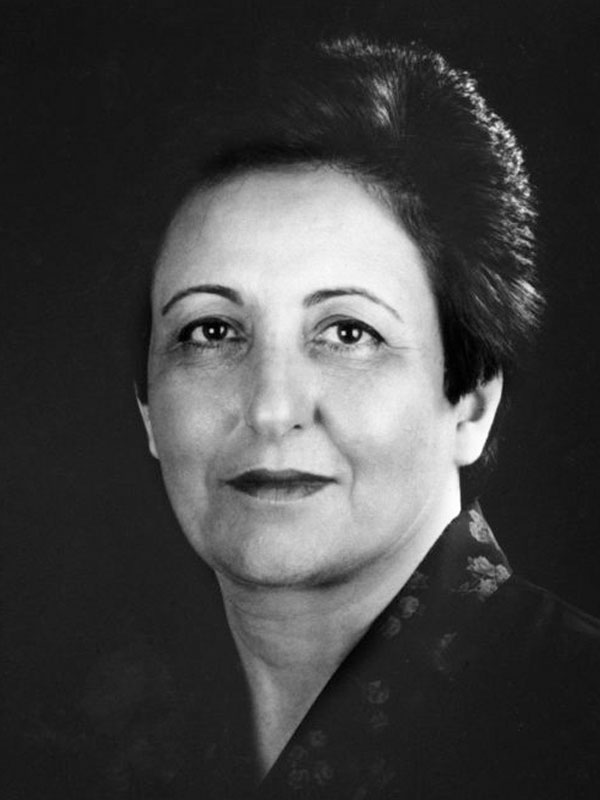Shirin Ibadi
I was born in the city of Hamedan [northwestern Iran] in 1947. My family were academics and practising Muslims. At the time of my birth my father was the head of Hamedan’s Registry Office. My father, Mohammad Ali Ebadi, one of the first lecturers in commercial law, had written several books. He passed away in 1993.
I spent my childhood in a family filled with kindness and affection. I have two sisters and a brother all of whom are highly educated. My mother dedicated all her time and devotion to our upbringing.
I came to Tehran with my family when I was a one year old and have since been a resident in the capital. I began my education at Firuzkuhi primary school and went on to Anoshiravn Dadgar and Reza Shah Kabir secondary schools for my higher education. I sat the Tehran University entrance exams and gained a place at the Faculty of Law in 1965. I received my law degree in three-and-a-half years, and immediately sat the entrance exams for the Department of Justice. After a six-month apprenticeship in adjudication, I began to serve officially as a judge in March 1969. While serving as a judge, I continued my education and obtained a doctorate with honours in private law from Tehran University in 1971.
I held a variety of positions in the Justice Department. In 1975, I became the President of Bench 24 of the [Tehran] City Court. I am the first woman in the history of Iranian justice to have served as a judge. Following the victory of the Islamic Revolution in February 1979, since the belief was that Islam forbids women to serve as judges, I and other female judges were dismissed from our posts and given clerical duties. They made me a clerk in the very court I once presided over. We all protested. As a result, they promoted all former female judges, including myself, to the position of “experts” in the Justice Department. I could not tolerate the situation any longer, and so put in a request for early retirement. My request was accepted. Since the Bar Association had remained closed for some time since the revolution and was being managed by the Judiciary, my application for practising law was turned down. I was, in effect, housebound for many years. Finally, in 1992 I succeeded in obtaining a lawyer’s licence and set up my own practice.
I used my time of unemployment to write several books and had many articles published in Iranian journals. After receiving my lawyer’s licence I accepted to defend many cases. Some were national cases. Among them, I represented the families of the serial murders victims (the family of Dariush and Parvaneh Foruhar) and Ezzat Ebrahiminejad, who were killed during the attack on the university dormitory. I also participated in some press-related cases. I took on a large number of social cases, too, including child abuse. Recently I agreed to represent the mother of Mrs Zahra Kazemi, a photojournalist killed in Iran.
I also teach at university. Each year, a number of students from outside Iran join my human rights training courses.
I am married. My husband is an electrical engineer. We have two daughters. One is 23 years old. She is studying for a doctorate in telecommunications at McGill University in Canada. The other is 20 years old and is in her third year at Tehran University where she reads law.
See also www. nobelwomensinitiative.org
[Thanks to The Nobel Foundation 2003 & nobelprize.org]
